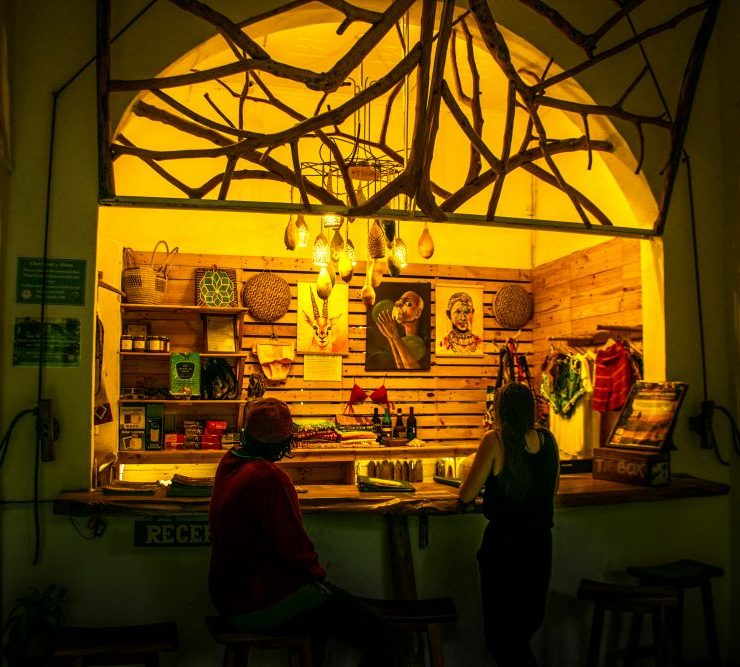In Search of African Vanguards

Abel Merawi is from Addis Ababa. He is an English…
It Takes a Village to Raise a Child
There is an African proverb, “It takes a village to raise a child.” My generation and the ones before us are the sole testament to its practicality. From my childhood onward, I remember that there has always been someone there for me: someone who checks my every publicly displayed demeanor; someone to praise my good deeds and condemn the bad ones; someone who may be a stranger, but with a familiar expression that says, “I care about you.”
The above proverb emanated from the great African philosophy of ‘Ubuntu’, which means, ‘I am because we are.’ It teaches a life of unity, a world of harmony and compassion amongst everyone. It preaches love and unity, rather than division and individuality. Unhealthy competition is not the vocabulary of Ubuntu. Rather, this African philosophy is the language of kindness. Such an attitude is also found in many Ethiopian cultures. This great ideal can only be a reality when we all unite and work towards the good life – not for personal success, but for building a wonderful world that accommodates us all.
For this task, we need vanguards that lay the future path. These people are the ones who should lead the youth along the right path. They will show our children the distinction between right and wrong. I had such guidance growing up, and it saddens me to see that we are not doing the same for the current and perhaps future generations to come. I implore the ‘grown-ups’ to act like grown-ups. Can we blame children when they fight, when all we have shown them through our actions is conflict and war? Where can we get the courage to tell them to protect the environment, when all we do is throw trash everywhere and urinate on the streets? What gives us the right to tell them to share, when all we do is rob and steal?
We ought to take caution of the words we utter in front of children since they have a tremendous effect on their development. It is worthwhile to assume that there is always someone watching us, ready to learn from us. We can’t be angry at a child for using racial, gender or any form of slur. They didn’t invent the words, but only learned them from us. Every child tends to experiment with the things learnt from the environment. We can’t blame a child for acting wrongly, when it is from us that the child picked up the action.
Sadly, most of us have the audacity to blame street children, who are orphans or displaced people and who are the outcome of social and political instability, for the way they act and live. I say we have lost that privilege when we ignored and passed them on the street, while they cried for our help and when they begged for guidance. Every time we look at them with contempt, or deny their existence with our indifference, we are feeding them hatred towards the world. We do not have to look any further to find them: they are our neighbors, they live near garbage disposals struggling for survival, and they shine shoes, sell all sorts of things, just to make it to the next day, struggle to buy basic necessities, etc. With a selfish and individualistic mentality, we can even manage to forget their existence. But such neglect is not expected from the wise adult. We can assume our responsibility only extends to our own children and relatives. However, this is not expected from wise grown-ups!
Just as every adult is responsible for children, intellectuals and leaders are also expected to be exemplary towards their people. As pathfinders, our leaders should be worthy of respect. The respect they demand from the people should not be won by verbal virtuosity, a kind of sophistry in which they redress reality to make it fit their agenda. When a leader takes the sufferings of the people to make it a class or race struggle, they are deceiving the people. When activists use present poverty and unemployment as an ethnic problem to rally the youth against their fellow citizens, it is a mark of evil. The various political parties, including the ruling party, have often used the people as a means or tools to champion their personal and party agendas. Such leaders are not the sort of pathfinders our country needs to lift the burdens of poverty from the people.
Just as magicians trick us into accepting deceptions as reality, adults and leaders, in particular, have made us lose our grasp of reality. This makes it is necessary to identify the required features of a pathfinder. I think, the basic values required to be called a wise adult or a true leader, are, among other things, moral integrity and industriousness. Having moral integrity can simply mean practicing the seven virtues: prudence, justice, temperance, courage, faith, hope and charity. Hope is probably the most important and essential element for any nation. And this is fostered by collective tolerance, trust, and unity towards a similar goal. A study by Willis showed that “poorer children often grow up in an environment where people see little hope of upward social mobility and rebel against the system rather than try to conform to it. In such an environment, adults often discourage rather encourage success in school.” When adults frequently indulge in riots, the children lose hope for the future; but when adults work in harmony, the children will see bright prospects in the future. The people can learn these virtues when their leaders possess and show them in their actions, and children develop them when they observe it in the adults around them.
Industriousness is also a necessary component, especially in developing countries like Ethiopia. All the speeches our leaders give amount to nothing when there is no tangible work done to solve the problems. Poverty cannot be fought with mere words, when actual work is in want. I do not think it is arguable to say that we need to work and be industrious in every endeavor. All of us, in every profession, have to perform our work to the best of our ability. A country that has more political commentators and protestors than industrious people will undoubtedly suffer in poverty. It is wise to remember that poverty is not always the cause of social unrest, but an outcome. It is argued in Metron’s strain theory that, “Children raised in poverty, for example, may see little hope of becoming successful if they ‘play by the rules’. As a result, they may seek wealth through one or another kind of crime.” Accordingly, we need leaders that spend more time doing the necessary work, leaders who engage in activities that benefit the people economically, than in propaganda that politically benefits themselves. This, in turn, will prevent social unrest that originates from poverty. Furthermore, our leaders have to rule by adhering to the rule of law instead of public opinion and partiality. Children also respect adults that spend their day working, than those who frequent leisurely activities.
In the end, I don’t think we the people act this way because we are oblivious to the hard truth. I think we act this way because we find it easier. It is easier to hate than to love; and it is easier to hit or insult a child than to raise one. This is simply because love and compassion require constant effort and we refuse to take the initiative. In closing, I think we should remember one fact: it is never the fault of any child but the adult. No child chose to come to this world; we made the choice for them. This makes us responsible to be their pathfinders. We should provide solace and ease their burden. To return to the African philosophy of Ubuntu, it takes a village or a nation to raise a child, and if the pathfinders destroy the village, the future becomes futile for the existing and subsequent generations.
What's Your Reaction?
Abel Merawi is from Addis Ababa. He is an English literature teacher, freelance writer/reporter for Ezega.com and an Amharic-English translator and editor. He also writes for www.msingiafrikamagazine.com. You can reach him via: abelmerawi4@gmail.com


















